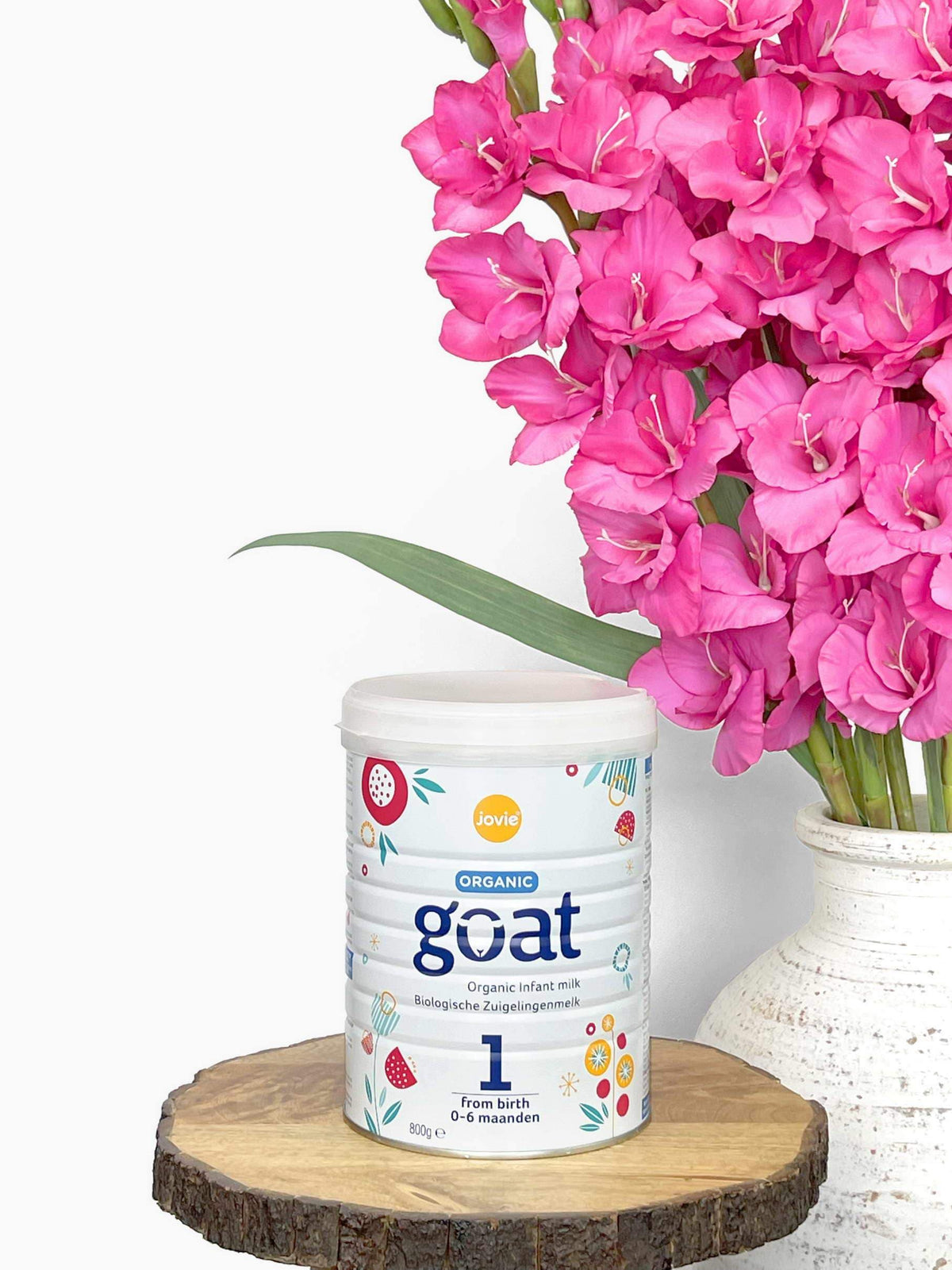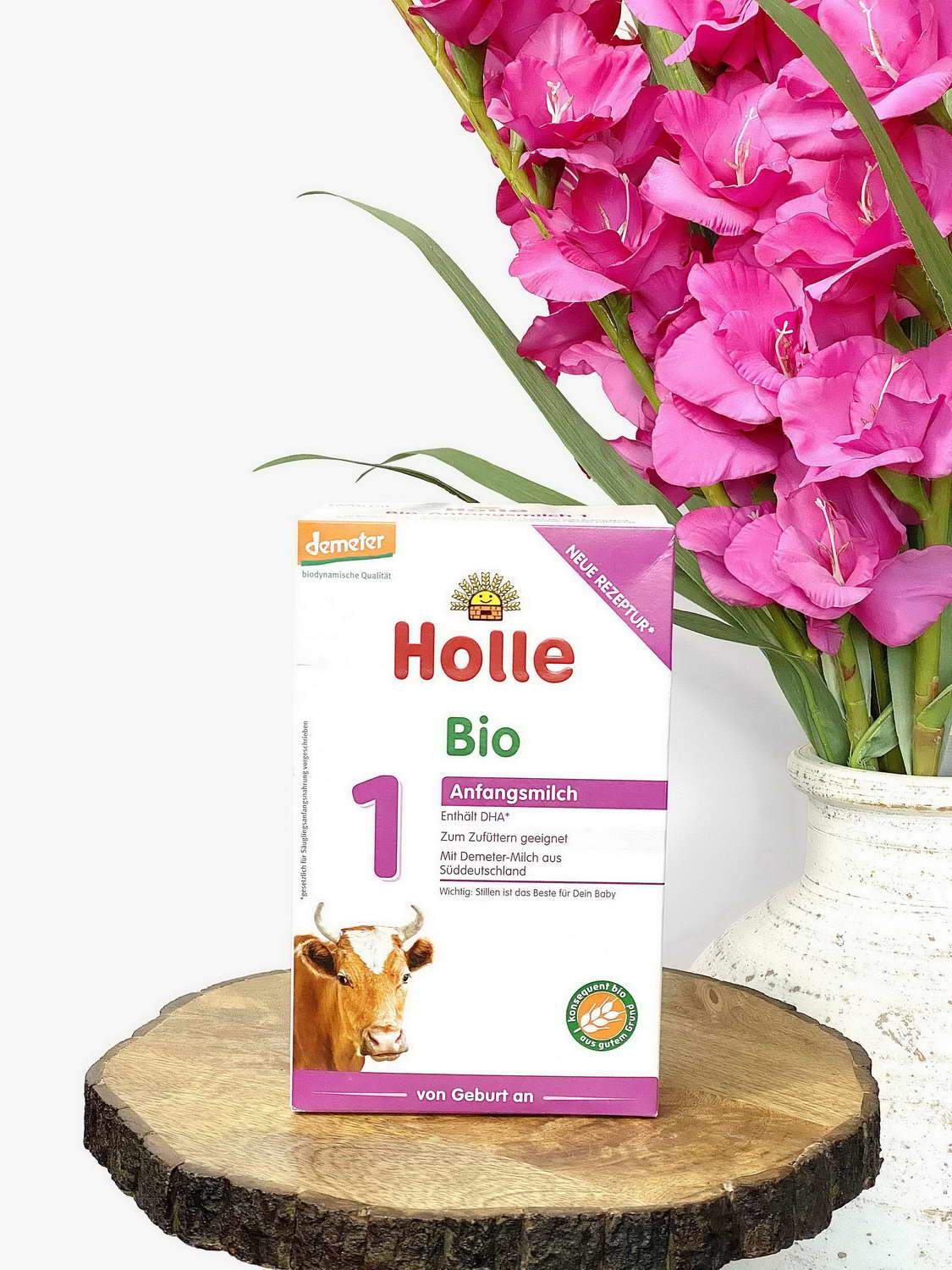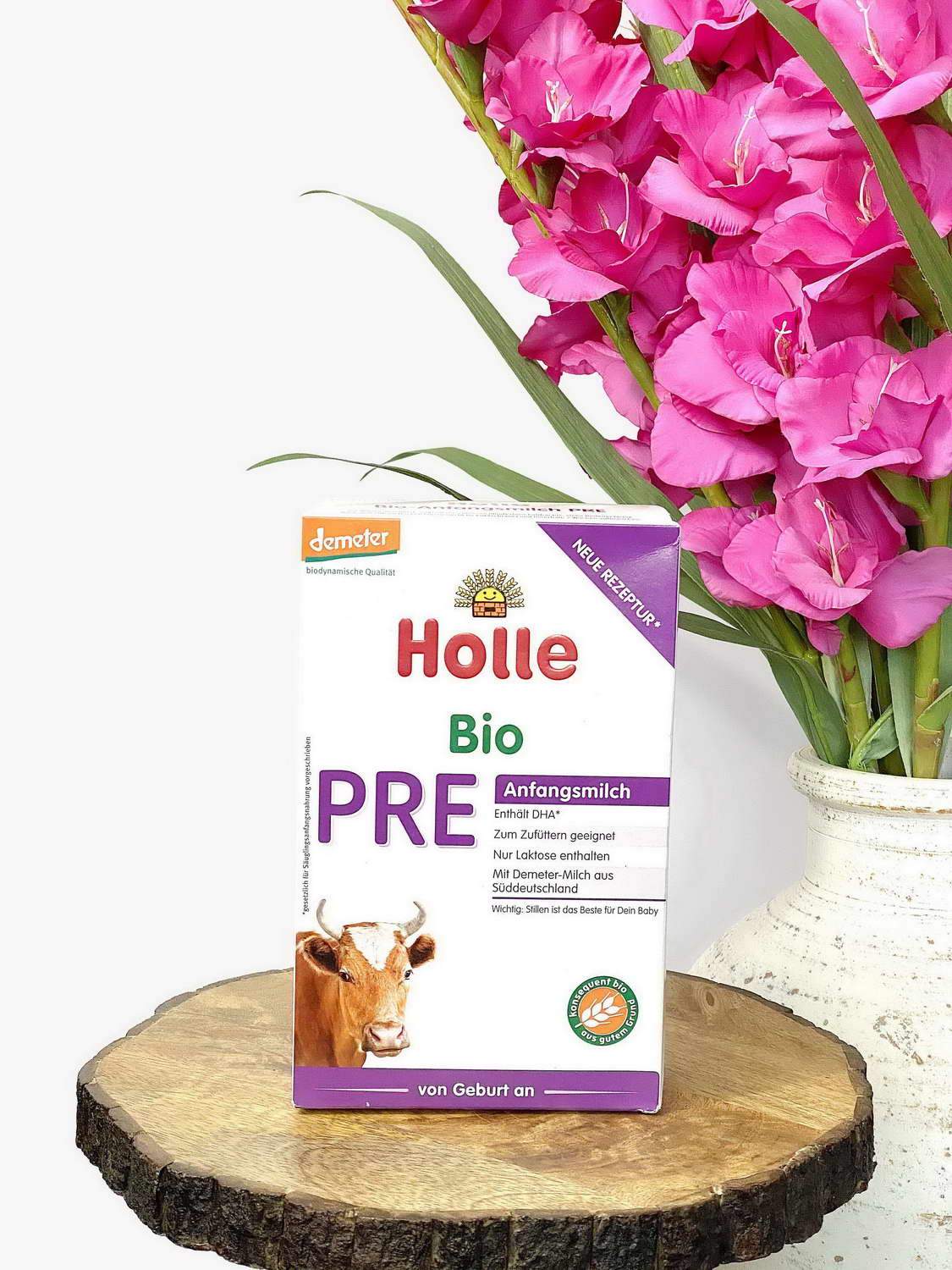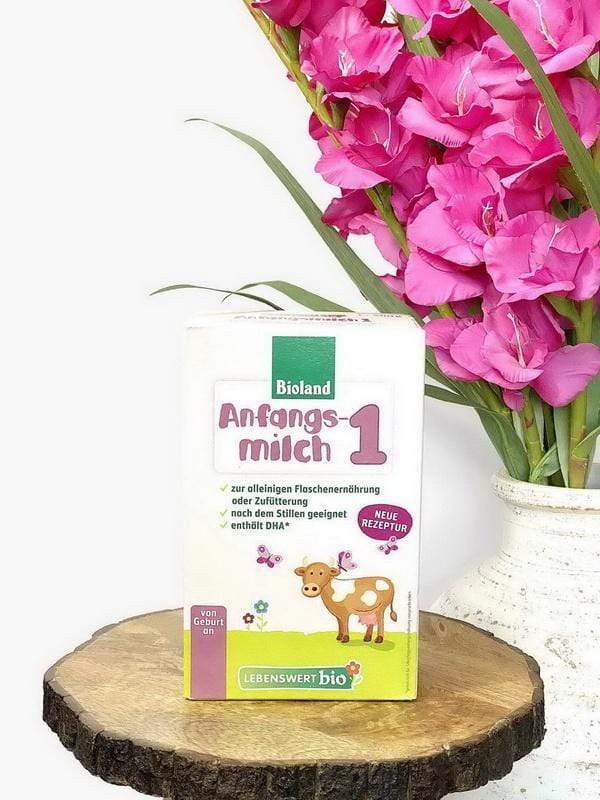To find the perfect nutrient-dense food source for a growing infant, it is important that the baby formula you choose mimics the nutritional composition of human breast milk as closely as possible. The first step on this journey to find pure healthy nutrition for your little one is to understand the ingredients.
Even with careful research it can be a daunting task to wade through the mixed reactions to some of the most well-known ingredients. Today we will examine ingredients we received many inquiries about and then tackle the big palm oil question, so that you can feel confident in making a better informed decision when it comes to the European baby formula that will work best for your infant.
Comparing Baby Formulas
First, we would like to provide you with a comprehensive chart comparing the most popular European brands. Hopefully this will help as a reference point for the formula you would like to choose for your baby.
Below the chart we discuss each of these ingredients in detail, so feel free to refer back up to the chart to see if that ingredient is in the formula you are considering!
Maltodextrin
Maltodextrin is typically derived from corn but can also come from rice or potatoes. In European baby formula, maltodextrin is most often found in the hydrolyzed form for ease of digestion.
Maltodextrin is a complex carbohydrate that helps provide the necessary energy for growth and sustained brain activity during the most critical stages of your little one’s development.
Maltodextrin Concerns
When parents see maltodextrin labeled sugar as a carbohydrate, there may be concerns about artificial sweeteners and health implications caused by too much sugar in their baby's formula. Families are also worried that maltodextrin is being used as a filler in their little one’s European baby formula without any real benefit.
Maltodextrin Facts
European baby formulas such as HiPP Comfort, Holle, Loulouka and Lebenswert use maltodextrin as a supplement to the main lactose carbohydrate. When used in small hydrolyzed amounts, this powdered additive has a neutral taste and very little sweetness, which is perfect for little ones that have a sensitive digestive system.
Maltodextrin helps provide slow-release balanced energy that lasts. This allows littles ones the necessary energy to grow and thrive without causing blood sugar crashes that come from fast burning sugars like sucrose and corn syrups.
All maltodextrin follows the same strict guidelines parents have come to expect from EU regulations and will only be sourced from sustainable crops, without the use of GMOs or pesticides.
Starch
In European baby formulas, starch is sourced from potatoes and corn. This odorless and tasteless white powder is commonly used as a supplement to the main lactose carbohydrate that all European baby formulas start with and as a thickening agent.
Starch Concerns
Parents believe that all starch is bad for babies at all stages and will be a major cause of digestive worries.
Starch Facts
Starch plays an important role in many European baby formulas, especially for older babies and little ones with digestive distress.
By acting as a thickener in European formulas such as HiPP HA and HiPP Comfort, starch helps to settle stomach acids while allowing for the storage of the main carbohydrate in European baby formulas; milk-based lactose. Helping lactose to be efficient benefits your little one with healthy, clean energy when it is needed the most - during growth and development.
For older babies, starch is used in toddler formulas such as Holle Stage 4 to help littles over 12 months old get ready for solid nutrition and performs as a slow release binder for energy sustaining lactose.
When used in European baby formulas, starch is extracted from organically grown agriculture; this exceeds European Union organic regulations.
#1 Toddler Formula With Starch
Holle Bio Stage 4
Age: 12 months +
Size: 600g / 21oz
Why Choose?
Biodynamic & Demeter organic certified, Maltodextrin for fuller tummies, No added prebiotics/probiotics
Starch Free Stages
During the first few months, newborns may have a hard time with the digestion of starch; which can lead newborns to constipation. With that in mind, European baby formula brands such as HiPP, Holle and Loulouka do make starch free pre and stage 1 for the most sensitive infants.
It is important to note that starch may not always be the cause of your newborn's digestive troubles, so it’s best to speak to your pediatrician before switching European baby formulas.
For babies that are sensitive starch throughout their growth, European formulas recognize this and provide multiple options. For example, all of the Kendamil stages are starch free, so you don’t have to switch brands as they grow. HiPP also provides a starch free option as well in their HiPP stage 2 starch free version; plus, they have no starch in their Kindermilch versions once they hit toddlerhood.
#1 Formula Without Starch
HiPP German Combiotic Stage 2: No Starch
Age: 6-12 months
Size: 600g / 21oz
Why Choose?
Prebiotics & Probiotics for healthy digestion, No starch, Skimmed Milk
Palm Oil
When European companies develop their formulas, the first priority is to try and mimic breast milk wherever possible, this includes essential fatty acids which are healthy for your baby’s body.
For European baby formulas to mimic the fatty acid profile found in breastmilk roughly half of the calories must come from fat. Fatty acids are an essential part of infant nutrition as an energy source and are an aid in the absorption of vital vitamins and minerals babies need for proper growth and development.
Palm oil or palm olein oil is a good source of palmitic acid, which accounts for roughly 20-25% of the fatty acid content of breast milk. Palm oil is also used in so many formulas as an excellent source of vitamin A and vitamin E, and there is some evidence that it can help promote long term healthy cholesterol levels.
Palm Oil Concerns
There have been studies which have linked palm oil with the absorption interference of certain nutrients, like calcium. Parents are often worried that these nutrients will be lost and growth will be inhibited.
Another important concern relates to palm oil and the environmental impact left after sourcing. Unfortunately, it is well known that much of the world’s palm oil is produced using agricultural methods that are detrimental to ecosystems and biodiversity, so it is assumed that there is not a sustainable or responsible way to farm and use palm oil in European baby formulas.
Palm Oil Facts
European baby formula companies carefully consider all aspects of infant nutrition including absorption of nutrients.
When designing European baby formulas, manufacturers compensate for the effects of palm oil by adding increased amounts of calcium during production. Brands such as HiPP Dutch also have the added advantage of prebiotics and probiotics which balances gut flora and drastically aids in the absorption of all nutrients, including calcium.
Recent research also indicates that the palm oil in your little one’s formula will not adversely affect calcium levels and bone density in the long run. European baby formula manufacturers go the extra mile to ensure all babies are able to get all of the calcium they need to build strong bones, healthy skin and teeth.
Environmentally speaking, well-respected European baby formula companies such as HiPP and Holle use only sustainable-sourced and socially-responsible organic palm oil. Produced organically to protect the rainforests and biodiversity, where there is no deforestation of the rainforest.
#1 Formula With Palm Oil
HiPP Dutch Combiotic Stage 1
Age: 0-6 months
Size: 800g / 28.22oz
Why Choose?
Prebiotics & Probiotics for healthy digestion, No Maltodextrin, Skimmed Milk
Coconut Oil
Another source of fatty acid used in European baby formulas comes from coconut oil. This oil is sourced from the meat, also known as the kernel, of coconuts. Only mature coconut fruits that are harvested from the palm tree are suitable for oil collection.
Coconut oil is rich in high-saturated fat and is resistant to rancidification, which means it has a long shelf life without going bad.
Coconut Oil Concerns
The main argument against coconut oil is its high saturated fat content. Parents and caregivers worry about long term health implications.
Deforestation related to coconut oil production is also a concern. New data has been in the news showing the possible effects to threatened plant and animal species in and around growing areas.
Coconut Oil Facts
The use of organic, ecological, and sustainable farming is incredibly important in every aspect of European baby formula brands Kendamil and Loulouka. Both of these companies have dedicated time and resources to ensure your little one gets only the very best in nutrition using coconut oil as a healthy fat that mimics breast milk.
European regulations insist that all coconut oil is sourced from areas that are certified in biodiversity to make sure native animals and plants are protected. Pesticides and herbicides are never necessary and coconuts are harvested by hand, instead of by a giant tractor-which is good for the local economy and the environment.
Coconut oil is well known for medicinal properties such as supporting good cholesterols while also lowering the risk of cardiovascular diseases.
Coconut oil contains a lot of 12-carbon lauric acid which, when digested, forms a compound that’s known as monolaurin. These substances can help the body eliminate dangerous pathogens like viruses and bacteria in the short term. In the long term, they are known to boost brain function and might prevent certain health conditions such as Alzheimer’s.
#1 Formula With Coconut Oil
Kendamil Stage 1
Age: 0-6 months
Size: 800g / 28.22oz
Why Choose?
Whole Milk option with MGFM, DHA/ARA from Algae Oil instead of Fish Oil, No Palm Oil
Palm Oil vs Coconut Oil
Fatty acids are important nutrients for a child’s development. In the use of palm oil vs coconut oil both have advantages and disadvantages. Here are some highlighted differences.
Palm oil is rich in vitamin A and vitamin E; whereas coconut oil is better absorbed by the body, so extra calcium is not needed.
Palm oil is more affordable and coconut oil is more readily available. Both have ecological advantages and disadvantages, but they can be farmed in a biodiverse and organic manner as needed to protect the environment and lift the local economy.
Weighing sourcing and benefits, we truly believe that the use of palm oil and coconut oil in European baby formula helps to create the perfect balance of fat, protein, nutrients, and carbohydrates needed to help your little one grow and thrive.
European Baby Formula
European baby formulas are designed to mimic the nutrients found in breast milk as close as possible. European brands rely on ingredients that provide the closest composition of carbohydrates, fats, proteins, vitamins, and minerals that are sourced ecologically and sustainably.
My Organic Company is proud to bring you only the very best in European baby formula made with organic, pure, and trustworthy ingredients. You can feel confident that there will never be unnecessary additives such as GMOs, soy, chemicals, preservatives, or pesticides.
To join the discussion on European baby formula and ingredients with other families and European formula experts, make sure to visit our community Facebook page.














